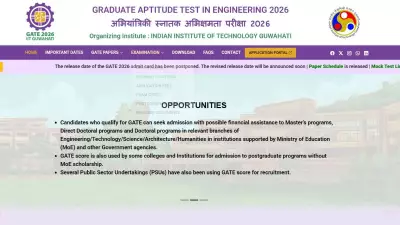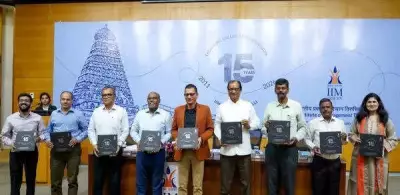
Renowned mathematician and Super 30 founder Anand Kumar has identified systematic learning as the key factor behind China's remarkable success in the International Mathematical Olympiad. His analysis comes after China secured the top position in the prestigious global competition, leaving other nations, including India, trailing behind.
China's Mathematical Dominance Explained
Anand Kumar, who has transformed the lives of numerous underprivileged students through his pioneering Super 30 initiative, emphasized that China's consistent performance in mathematics competitions stems from their highly structured educational approach. The mathematical wizard noted that Chinese students benefit from a well-organized system that builds fundamental concepts methodically from an early age.
"The Chinese have developed a system where mathematical thinking is cultivated systematically," Kumar explained during his interaction with the media. This year's International Mathematical Olympiad saw China claim six gold medals, demonstrating their comprehensive dominance in the field. The United States followed in second position, while India secured the 20th spot in the rankings.
Systematic Learning Versus Rote Memorization
Kumar drew a crucial distinction between genuine mathematical understanding and mere formula memorization. He stressed that true mathematical excellence requires developing strong reasoning abilities and analytical thinking skills, qualities that the Chinese educational system effectively nurtures.
"Mathematics isn't about memorizing formulas but understanding concepts deeply and developing the ability to think logically," the Super 30 founder elaborated. He observed that many Indian students tend to focus on rote learning rather than building a solid conceptual foundation, which ultimately limits their problem-solving capabilities in international competitions.
The Patna-based educator highlighted that China's success reflects their long-term investment in mathematical education and their systematic approach to identifying and nurturing young talent. Their training methodologies involve progressive skill development that enables students to tackle increasingly complex mathematical challenges with confidence.
Lessons for Indian Education System
Anand Kumar's observations carry significant weight given his extraordinary track record with Super 30, where he has successfully prepared economically disadvantaged students for entrance examinations to premier institutions like the Indian Institutes of Technology. His program has achieved remarkable results by focusing on conceptual clarity and systematic preparation.
Kumar advocated for implementing systematic learning approaches within Indian classrooms, suggesting that this methodology could dramatically improve the country's performance in global academic competitions. He emphasized the need to move beyond traditional teaching methods and embrace more structured, concept-oriented learning strategies.
The mathematical educator also pointed out that developing strong analytical skills benefits students beyond examinations, preparing them for successful careers in technology, research, and innovation-driven fields. He believes that adopting systematic learning methodologies could help Indian students compete more effectively on the international stage.
As nations worldwide recognize the growing importance of STEM education, Kumar's insights provide valuable guidance for educational reformers and policymakers seeking to enhance mathematical capabilities among young learners. His analysis underscores the critical relationship between teaching methodologies and academic achievement in competitive environments.





